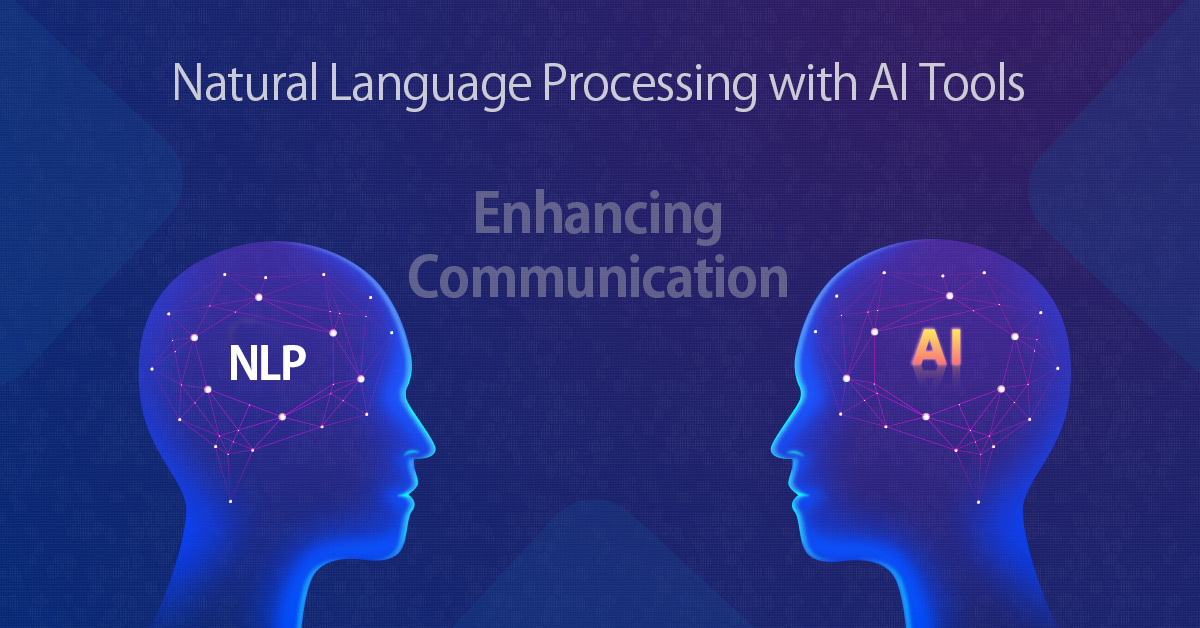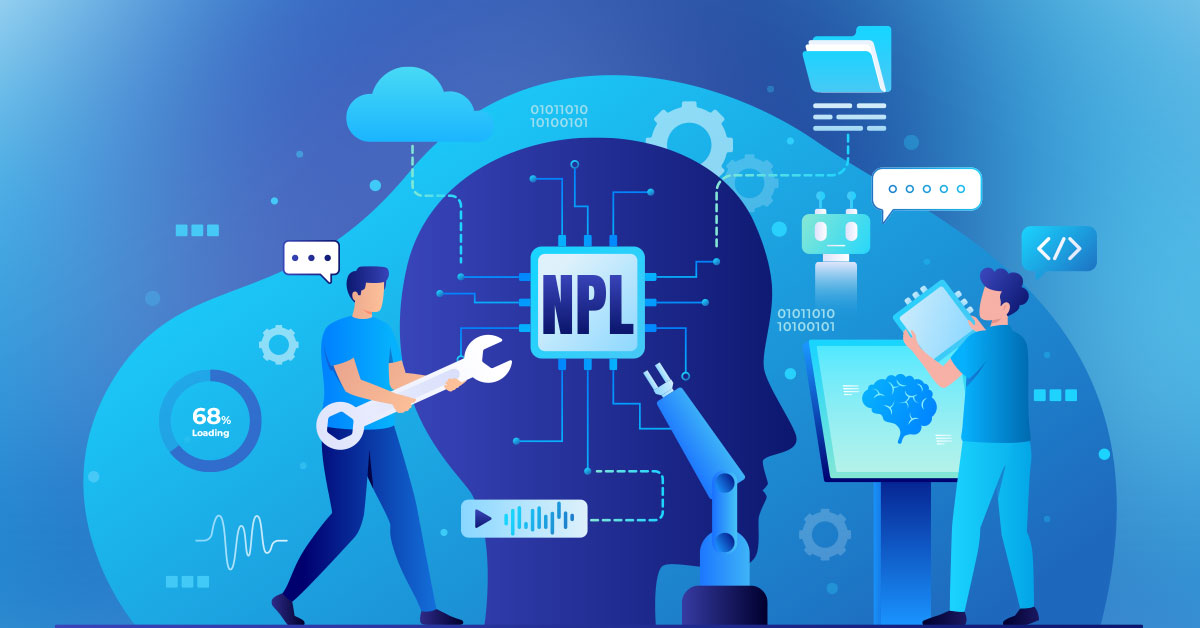Exploring NLP: How Natural Language Processing is Changing Communication

6 min read
The importance of communication has increased significantly. Effective communication is now crucial for both personal and professional success due to the emergence of social media and ongoing connectivity. However, what if technology could improve and simplify our communication? Natural language processing is useful in this situation. By enabling computers to understand and interpret human language, NLP services are transforming communication. We will look at NLP in this blog post and see how it is influencing communication.
The Rise of NLP: How it’s Changing Communication
Nowadays, communication is more essential than ever. Effective communication is now essential for both personal and professional success due to the growth of social media, online messaging, and constant connectivity. But what technological strategies can we use to improve and simplify our communication? Let us introduce Natural Language Processing, an area of artificial intelligence that is transforming human interaction and communication.
Language technology makes it possible for computers to understand and interpret human language through AI language processing. It examines and interprets speech, text, and other types of communication in terms of meaning, sentiment, and context. With this advanced technology, many aspects of communication are being transformed, including customer service. customer satisfaction and efficiency are increased when NLP is used in customer service because it enables faster, more accurate responses to customer inquiries.
However, its effects extend beyond customer support. The technology is being incorporated into a wide range of everyday applications, including voice recognition software, language translation programs, and virtual assistants such as Siri and Alexa. These facilitate more fluid and open communication between speakers of various languages and cultural backgrounds.
Future developments in language processing could significantly alter how we communicate and use technology. Talking assistants, chatbots with greater intelligence, and tailored communication experiences are all things we can anticipate as technology develops.
NLP Applications in Everyday Life
It is not enough to consider NLP as a futuristic phrase or catchphrase. Although we may not be aware of it yet, it has already become a part of us. It improves our lives by being incorporated into a wide range of services and applications that we use on a daily basis.
The field of customer service is one of the most notable applications. Businesses can respond to customer inquiries more quickly and accurately by utilizing it. Computers can provide individualized and beneficial solutions by using AI language processing to understand the content and context of customer communications. It enhances customer satisfaction while simultaneously handling customer inquiries more efficiently.
These voice-activated assistants interpret our commands and give us the help or information we require by using natural processing language. Through natural language interactions, they can answer questions, play music, set reminders, and even control smart home appliances.
It is also used frequently in language translation software. Language barriers are getting easier to overcome through natural language processing AI simplifies the translation of texts between languages. It creates new avenues for cross-cultural and cross-linguistic collaboration and communication.
Natural language processing is blending smoothly into our daily lives, improving communication and streamlining tasks. More NLP applications in industries like healthcare, education, and entertainment should be forthcoming as the technology develops. As a result, people are communicating more logically and organically with technology.
Natural Language Processing and the Future of Human Interaction
The way we engage and communicate with technology and each other could be drastically changed by natural processing language as we continue to harness its revolutionary power. It is just the beginning of NLP in customer service.
One day, with the help of sophisticated natural language processing tools, we may have meaningful conversations with chatbots and virtual assistants. In addition to understanding our words, these advanced systems also understand the subtleties of our language so they can respond more accurately and effectively. Moreover, these chatbots recognize emotions from the way we express ourselves because they have emotion recognition built in. In addition to improving communication efficiency, natural language processing for chatbots fosters more individualized and compassionate exchanges because virtual assistants can detect and respond to our emotions in real-time. Our interactions with technology can become more natural and intuitive with the help of natural language. Improved productivity and efficiency, as well as a more tailored and fulfilling user experience, could result from this.
Furthermore, it has the power to eliminate language barriers, facilitating smooth communication between speakers of various languages and cultural backgrounds. It creates countless opportunities for cross-cultural cooperation, business dealings, and the exchange of ideas.
However, natural language is not limited to speech. It could fundamentally alter how users interact with augmented and virtual reality, among other digital platforms. We can interact with technology in a more organic and immersive way by processing language, allowing it to become an extension of who we are rather than a distinct entity.
Natural processing language has exciting and limitless potential for human interaction in the future. The advancement of technology will bring even more advanced applications that will improve our daily lives. Prepare yourself for a time when technology will actually understand human language and interact with us in a way that is most natural and human.
How Does NLP Affect Businesses and Industries?
Broad and far-reaching is the impact of NLP on industries and businesses. Significant gains in productivity, efficiency, and customer satisfaction could result from this revolutionary technology’s ability to change how businesses run and interact with their clients completely.
Customer service is one of the primary areas where NLP is having an impact on businesses. Businesses can automate and optimize their customer support procedures with NLP, resulting in more responsive responses and individualized interactions. It helps businesses save money on time and resources while also enhancing the overall customer experience. It can also completely transform sectors like finance and healthcare. With the use of natural language processing, financial institutions can examine enormous volumes of data and identify trends or abnormalities that improve risk assessment and decision-making.
Furthermore, it is giving companies new ways to collect and evaluate consumer feedback. Organizations can customize their goods and services to match the needs of their customers by using sentiment analysis to obtain insightful knowledge about the preferences and viewpoints of their customers. It has a transformative overall effect on industries and businesses. As businesses continue to leverage this technology, we should anticipate greater productivity, better decisions, and better customer experiences in a variety of industries. Businesses that use it will undoubtedly have a competitive advantage.
The Ethical Considerations of NLP Technology
As we continue to explore natural language processing, it is essential to consider the ethical questions raised by this cutting-edge technology. Language technology has the potential to drastically alter communication while also raising important issues with privacy, bias, and accountability.
Processing and analyzing personal data is a necessary part of information retrieval, which presents significant privacy issues. Retaining trust and safeguarding user privacy necessitates transparent data collection practices and unambiguous consent mechanisms.
Another important ethical factor in NLP in artificial intelligence is bias. Large-scale data sets used to train language models may unintentionally reinforce biases found in the original data, producing discriminating results. Developers need to actively address biases and strive towards creating impartial and fair conversational AI systems in order to lessen this. Identify and eliminate bias by using robust algorithms and carefully choosing training data.
It is critical to define distinct lines of accountability for these systems’ actions as they develop. Building trust and accountability requires ensuring transparency in the decisions made by language understanding systems and identifying the parties responsible for any errors or potential harm.
Even though natural processing language has much potential, it’s important to think about the ethical implications. NLP research must prioritize privacy, bias, and accountability in order to assurance that this technology improves communication without undermining fundamental beliefs and ideals. These elements need to be taken into account if we are to protect individual liberty and the welfare of society while also properly acknowledging the benefits of conversational AI.
Conclusion
In summary, the study of natural language processing unveils a terrain of revolutionary discoveries that are transforming communication itself. The development of intelligent chatbots, complex sentiment analysis, language translation, and dynamic content creation are all impacted by neural language processing, which is at the forefront of technological advancement.
The potential of natural language processing is growing as we look to the future. It means that machine-user interactions will become more smooth and human-like. From improving user experiences to removing language barriers globally, the potential applications seem endless.
However, as with any powerful technology, it is important to navigate the path of progress with a conscientious awareness of ethical considerations. In order to maximize the advantages of NLP while minimizing potential risks, it will be important to address issues of bias, privacy concerns, and responsible development practices.
The field of natural language processing is experiencing rapid innovation and holds the potential to create a more cohesive and understandable world. We can look forward to a future where communication is not only effective and easily accessible but also considerate of the varied and dynamic nature of human language by upholding moral values and acknowledging the possibilities of natural language. We must mould this narrative in a way that improves the human experience and promotes constructive social change as the conversation between humans and machines develops.
Published: November 27th, 2023





